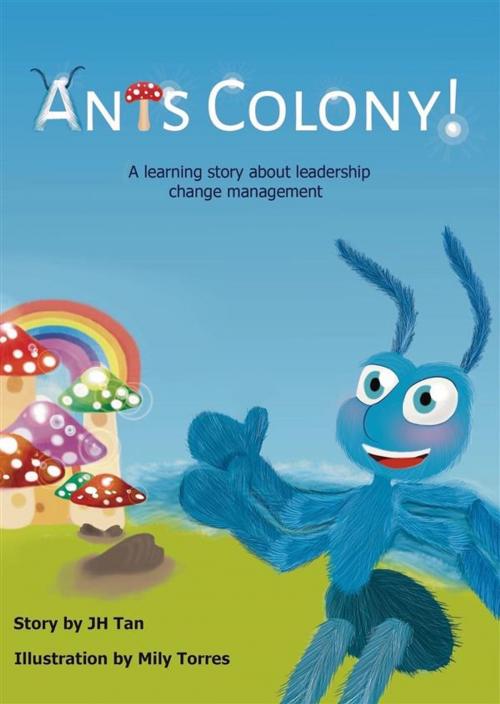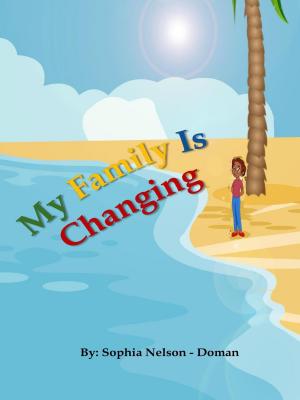Ants Colony!
A learning story about leadership change management
Nonfiction, Reference & Language, Education & Teaching, Educational Theory, Leadership, Health & Well Being, Psychology, Child & Adolescent, Child Development, Fiction - YA| Author: | JH Tan | ISBN: | 9788826439945 |
| Publisher: | JH Tan | Publication: | May 22, 2017 |
| Imprint: | Language: | English |
| Author: | JH Tan |
| ISBN: | 9788826439945 |
| Publisher: | JH Tan |
| Publication: | May 22, 2017 |
| Imprint: | |
| Language: | English |
The target reader groups are for children aged 3-8 years old.
In this first book of our series, the core leadership attribute that is focused in is about leadership change management. It is highly recommended that you can read with your child. The idea of inculcating how change management can be incubated is critical in helping your child take pro-active steps in being the creator of change that helps the others. The story character helps the child understands how change happens within groups.
Summing up the concept, change occurs when there’s a sense felt within and it is summarised as simply having the “Fear of loss, or the hope of gain”. Help the child understand what’s the group going to lose and what can they gain in making behavioural changes within groups. Within the book, there's a last page of summary for parents and also a snippet of reading strategies with your child.
The book was created to help the child develop intellectual empathy. Meaning they can learn to better understand the thoughts and motivations of others. Although my target group of children is between 3-8 years old, it is important to read with them as a way to encourage them to put themselves in the story and reflect on how they can become pro-active in their real world situations.
This story was created to develop intellectual empathy instead of emotional empathy, as there is a difference between the two.
A note to parents: Intellectual empathy aims to build the ability to perceive objectively how other people see and experience things, while emotional empathy is the ability to actually see and feel things the way others feel. Both are beneficial, there is no one better than the other. However, intellectual empathy helps the child predict how others will react to them and inspire them to come up with ideas that will inspire others, eliminating the risk of decision paralysis or inaction that emotional empathy can have on the child.
The target reader groups are for children aged 3-8 years old.
In this first book of our series, the core leadership attribute that is focused in is about leadership change management. It is highly recommended that you can read with your child. The idea of inculcating how change management can be incubated is critical in helping your child take pro-active steps in being the creator of change that helps the others. The story character helps the child understands how change happens within groups.
Summing up the concept, change occurs when there’s a sense felt within and it is summarised as simply having the “Fear of loss, or the hope of gain”. Help the child understand what’s the group going to lose and what can they gain in making behavioural changes within groups. Within the book, there's a last page of summary for parents and also a snippet of reading strategies with your child.
The book was created to help the child develop intellectual empathy. Meaning they can learn to better understand the thoughts and motivations of others. Although my target group of children is between 3-8 years old, it is important to read with them as a way to encourage them to put themselves in the story and reflect on how they can become pro-active in their real world situations.
This story was created to develop intellectual empathy instead of emotional empathy, as there is a difference between the two.
A note to parents: Intellectual empathy aims to build the ability to perceive objectively how other people see and experience things, while emotional empathy is the ability to actually see and feel things the way others feel. Both are beneficial, there is no one better than the other. However, intellectual empathy helps the child predict how others will react to them and inspire them to come up with ideas that will inspire others, eliminating the risk of decision paralysis or inaction that emotional empathy can have on the child.















